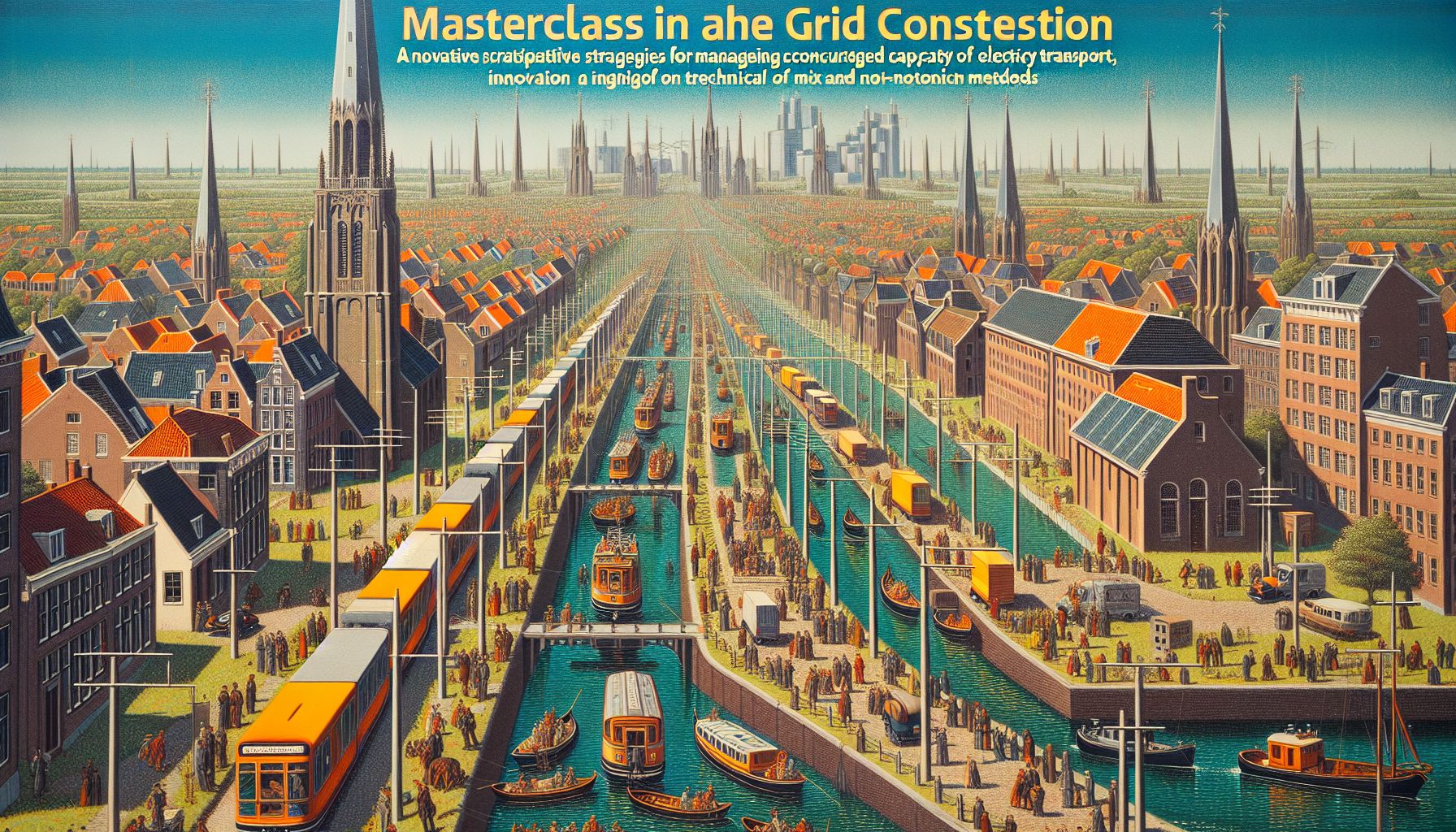Dutch Masterclass Tackles Grid Congestion to Boost Economic Growth

Netherlands, Friday, 9 August 2024.
A masterclass in the Netherlands aims to address grid congestion, a pressing issue hindering economic growth across various sectors. The program will explore innovative solutions to manage electricity transport capacity constraints, offering insights into both technical and non-technical approaches.
Understanding Grid Congestion
Grid congestion in the Netherlands arises when the demand for electricity transport capacity exceeds the available supply, leading to an overloaded electricity network. This issue is particularly problematic for the logistics, construction, and industrial sectors, which rely heavily on consistent and reliable electricity to function efficiently. The strain on the grid not only hampers daily operations but also stifles potential economic growth.
Masterclass to the Rescue
To tackle this challenge, HAN University of Applied Sciences, Connectr – Energy Innovation, and the Sustainable Electrical Energy Centre of Expertise (SEECE) have come together to organize the masterclass ‘Grip op Netcongestie’ (Grip on Grid Congestion). Scheduled for 7 and 14 November 2024 at the Connectr Shared Office in Arnhem, this masterclass will offer practical strategies and insights into understanding and mitigating grid congestion.
Innovative Solutions Explored
Participants in the masterclass will delve into both technical and non-technical solutions. Technical solutions include the use of batteries, generators, and local energy production to manage electricity supply more effectively. Non-technical solutions will cover innovative contract forms, behavioral changes, and the role of Congestion Service Providers (CSPs) in collaboration with grid managers. These solutions aim to provide a holistic approach to managing grid congestion.
Bidirectional Charging: A Gamechanger
One of the promising technical solutions highlighted in the masterclass is bidirectional charging. This technology allows electric vehicles (EVs) to feed electricity back into the grid, helping to balance supply and demand during peak periods. Companies like Kia and innovation centers like ElaadNL are working on overcoming the technical challenges associated with bidirectional charging, which can significantly alleviate grid congestion and enhance grid efficiency[3].
Global Perspectives on Grid Enhancements
While the Netherlands is grappling with its own grid congestion issues, similar challenges are being faced globally. In the U.S., for example, advanced transmission technologies (ATTs) are being promoted to increase grid capacity. These technologies, including grid-enhancing technologies (GETs) and advanced conductors, offer a faster and more cost-effective alternative to traditional infrastructure upgrades. If successfully implemented, ATTs have the potential to quadruple energy transmission capacity in the U.S. by 2035, saving up to $85 billion in system costs[2].
The Role of Policy and Regulation
Effective management of grid congestion also requires robust policy and regulatory frameworks. In the Netherlands, the masterclass will discuss the importance of regulatory support from entities like the Federal Network Agency (BNetzA), which oversees grid management and ensures compliance with national energy regulations[5]. Similarly, U.S. federal and state policies are increasingly supporting the adoption of ATTs to address grid congestion and improve reliability[2].
Conclusion: A Collaborative Effort
The masterclass on grid congestion in the Netherlands represents a significant step towards resolving a critical bottleneck in the country’s economic growth. By bringing together experts, policymakers, and industry leaders, the event aims to foster collaboration and innovation in tackling grid congestion. Through a combination of technical advancements like bidirectional charging and strategic regulatory support, the Netherlands can pave the way for a more resilient and efficient electricity grid, ultimately benefiting the broader economy.

